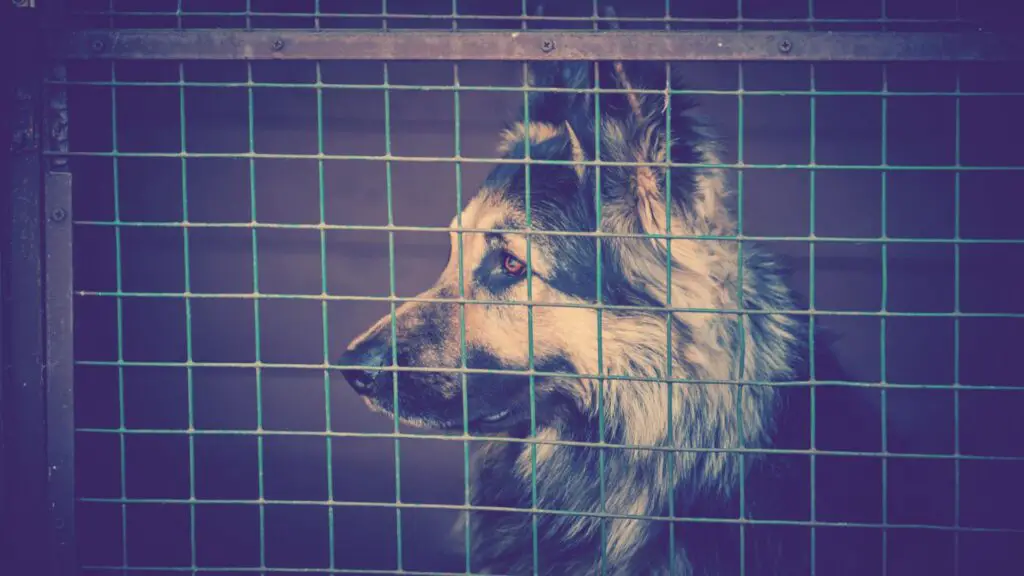Possibly the most common breed in America, German Shepherds have a complex history and are often the subject of many misconceptions. From their origins to their intelligence levels, here are 27 German Shepherd facts and questions to dispel any confusion.
1. Are German Shepherds really from Germany?
German Shepherds originated in Germany, but the idea of a shepherd dog was already popular in other countries.
The German name for the breed, Deutsche Schäferhunde, means ‘German Shepherd Dog,’ and the first dogs were brought to Germany by Dutch immigrants called Schäfer, who herded sheep with their dogs.
Throughout their history, most of the world’s best-known breeds have been developed in different continents by various nations.
2. Were German Shepherds first bred to herd sheep?
Not exactly. Farmers and shepherds have used various kinds of dogs for hundreds of years to herd sheep.
The German Shepherd was bred from other breeds by Captain Max von Stephanitz, and was purposely designed to be more intelligent, active, diverse and versatile than other breeds at the time.
3. How smart are they?
German Shepherds are incredibly intelligent dogs that perform well on obedience tests and are consistently ranked in the top 10 most intelligent dog breeds in America.
However, their intelligence level is relative to how much you train them every day . If you shoot for the moon and don’t reach it, don’t stop shooting. Just keep aiming higher.
4. Do German Shepherds have to be socialized?
Yes. They are a very social breed, and should be properly socialized when they are young to get used to interacting with other dogs and people.
If you have trouble with your dog not getting along with others, then find it a positive environment where it can learn that not all humans want to eat its face off and that there are many other things out there worth meeting.
5. What is a German Shepherd’s life span?
However, you want to measure it, a good German Shepherd will all too soon leave this world. According to the AKC, average life expectancy for a German Shepherd is approximately 10-13 years depending on factors such as size and breeding.
6. How much exercise do German Shepherds need to stay healthy?
German Shepherds are actually very active dogs, and should get at minimum 30 minutes of exercise each day. Their high energy levels are similar to that of Border Collies or Australian Shepherds, but unlike those breeds, they’re not just going to mope around the house all day. GSDs will require a bit more exercise to keep them happy and healthy.
7. Are they good guard dogs?
Many people believe that German Shepherds are good guard dogs, but in reality they are more likely to get along well with strangers than not.
The truth is that the only defense a dog can offer you is barking, and many German Shepherds don’t bark all that much at unauthorized visitors.
In fact, the breed tends to welcome strangers with wagging tails and sloppy kisses. All this to say that German Shepherds are definitely not the only breed for protection purposes, but should not be ruled out completely either.
8. Do German Shepherds shed?
While all medium- and large-sized dogs shed, German Shepherds are known for having an especially heavy shedding period twice a year.
Shedding is tied to the seasons, and generally the summers and springs are the worst time for German Shepherds. This is when you’ll want to brush them regularly to get rid of the excess hair.
Otherwise your house will be covered in a thick layer of their fur.
9. What is the average weight of a German Shepherd?
The average German Shepherd weighs between 50-75 pounds when fully grown. A secret to that weight is not to feed your GSD adult dog food and instead feed it puppy food until it’s at a proper weight.
You could also use a dog food specifically for large breeds, which will help with the size problem and just make your dog healthier overall.
10. Do they bark a lot?
German Shepherds are known for their barking, but their barking is different from dogs of other breeds like terriers because GSDs tend to bark at strangers.
This is something that you should take into consideration when choosing a GSD for your family to ensure that your dog doesn’t get too much psychological pressure in life.
11. When do German Shepherds have their first puppy?
For the most part, German Shepherds are very well-behaved when around small children, so it’s never recommended to breed them until they gain at least 6 months of age.
However, German Shepherds are known to breed frequently, so you should make sure you’re ready for a new baby in the family.
German Shepherds are much more likely to have puppies before the age of 2, but they don’t usually stray too far from that point.
12. Can male German Shepherds be trained?
Male German Shepherds can be trained just as well as female GSDs, but some people do say that male dogs tend to be more stubborn.
If you find that your male dog needs a little extra training than your female dog, then don’t go around making generalizations about gender differences in dogs or any other animal species. A little gender discrimination isn’t going to hurt a dog.
13. What do German Shepherds eat?
German Shepherds need a high-quality food to stay healthy and strong. In order to get the best quality diet, go with large breed dog foods that provide high levels of protein, essential fatty acids, and antioxidants.
You can also feed your GSD raw meaty bones as treats, which is an excellent way to get dogs to chew on something besides plastic or rubber bones.
14. How big do they get?
The average full-grown male German Shepherd tends to weigh anywhere from 50 to 75 pounds, with females usually weighing less than males at about 45 pounds when fully grown.
15. Is the German Shepherd a good guard dog?
German Shepherds are known for their excellent guarding abilities, but they tend to bark at any stranger that approaches your home. If you have young children, this can be a bit of a disadvantage because your GSD will bark at people and scare them away.
However, if you’re looking for an animal with aggressive tendencies, this might not be the best breed for you.
16. I want a German Shepherd as a pet; can I have one?
The German Shepherd Dog Club of America certifies that German Shepherds as pets are either suitable or undesirable on a case-by-case basis.
In order to qualify as a good pet, GSDs must be in excellent health, without any major genetic defects.
The only way that can happen is if the breeder you’re getting your dog from has already been certified as a GSD Club of America (GSDCA) breeder.
If you’re thinking of getting a German Shepherd as a pet, make sure that you get your dog from the right breeder. The GSDCA is also a good resource for finding breeders around the country.
Remember that getting a puppy from even the best breeder in the world can be risky and stressful for everyone involved. If you’re buying from a pet store, there’s no guarantee that your dog will be healthy or even have all of its shots.
17. Can I keep my GSD as an indoor pet?
You can keep your German Shepherd as an indoor pet if he’s well trained and doesn’t have any behavioral issues. This breed is active indoors and will need exercise as a part of your daily routine.
They’re also very intelligent and have excellent problem-solving skills, so they’ll be bored if they don’t have any way to channel their energy.
At the same time, if you keep your GSD in an apartment or condo, you’ll need to make sure that he’s not getting on the furniture (“couch surfing”) or causing accidents in the house.
Like all dogs, German Shepherds will also benefit from a personalized indoor play area where they can relax by themselves without your supervision.
However, it’s also important that your dog has plenty of human interaction every day. If you can’t make it to the park every day or take your dog out on walks, you’ll need to provide him with other outlets for his energy.
GSDs love playing ball and (of course) their favorite thing to do is patrolling and patrolling and patrolling.
However, as much as they enjoy their outdoor exercise time, they also thrive when their humans are interacting with them regularly.
GSDs are very intelligent and have excellent problem-solving skills.
It would be a terrible mistake for you to believe that German Shepherds only like being on a leash in public places or that they’re only happy when they’re home at night (or any of the other common myths surrounding these dogs). These dogs need lots of exercise and lots of interaction with their humans.
If you can’t provide your dog with these things, then it’s best to get a different breed.
18. What is the difference between a German Shepherd and a K-9?
The German Shepherd Dog Club of America states that there is a difference between the two breeds. However, this distinction mostly comes down to specific appearances in terms of coat color, size and markings.
The two breeds are still generally called “German Shepherds” and “K-9s,” even though people will occasionally refer to them as GSDs instead if they’re not sure whether it’s a German Shepherd or K-9 that they’re looking at.
19. What is the difference between a German Shepherd and a Malinois?
As with other breeds, there are also distinctions between the German Shepherd and the Malinois. It has to do with their coat color and size mainly, but as with the K-9, it’s more of a preference thing than anything else.
Whatever differences there are generally become evident during training classes or dog shows when breeders will attempt to have each dog compete in its own category.
In addition, breeders are also responsible for creating purebreds for breeding purposes when they want to continue improving on specific breeds.
20. How much does a German Shepherd cost?
German Shepherd puppies should be around $500 to $700, with adult dogs costing you between $1,000 and $2,000. Your dog’s price depends on its age and breeding status. The most expensive GSDs can cost upwards of $5,000 at the highest end of the spectrum for breeding purposes.
21. What size German Shepherd is the best for me?
Dogs are typically measured by weight and not length. That said, you may hear other people say that a GSD is too small or too big, when in reality they’re just made up of these measurements so they can feel better about themselves.
What anyone really means to say is that a German Shepherd will grow to be as large as their owners want them to be.
Whatever size you choose for your dog, it will end up being far bigger than many people would expect.
The average German Shepherd is between 50-75 pounds full grown, but some weigh as much as 90 pounds!
22. Can I keep my German Shepherd outdoors?
If you want to keep your GSD outside, make sure that he has a comfortable shelter and access to food and water. If it’s cold outside, you’ll also need to make sure that he has plenty of heavy blankets or dog houses.
Otherwise your dog will get cold and get sick. Also make sure to keep him clean so that he doesn’t develop skin problems from dirt or parasites.
23. When can GSD puppy start running?
According to the Sporting Dog Journal, large breed dogs should be allowed to run outdoors starting when they’re 3 months old.
However, if it’s cold outside where you live, you might want to wait a little longer before doing this.
Some people will wait until their GSDs are 6 months old or even until they’re 1-year-old before letting them out on their own.
By that time your puppy will be big enough not to get caught up in anything or have health problems from the cold weather.
24. Can I keep German Shepherd and a boxer together?
According to Dogster, there are lots of reasons why it would be okay for you to keep German Shepherd and a boxer together in one home.
All of their senses are excellent, so you don’t need to worry about any possible aggression issues.
This is probably one of the easiest dog combinations to train. GSDs are very intelligent and hard workers, so you’ll have an easy time training them with a boxer simply because it’s like training two different dogs in one.
25. Can German Shepherds have blue eyes?
Yes, German Shepherds can have blue eyes, but it’s not a common trait. That said, some people are drawn to specific physical traits in dogs (such as blue eyes), so if it’s something you were hoping for, GSDs are a good breed to look into.
26. Can German Shepherd puppies eat raw vegetables?
For the most part, raw fruits and veggies are safe for your German Shepherd to eat, but it’s important that you don’t give them any human food because it could make them ill.
There are also some foods that are completely unsafe for dogs and will cause them digestive issues or allergic reactions if they consume them. Some people who have GSDs will talk about “wolfing down” their food, although this is not an official way to describe eating habits.
According to Dogster, some experts believe this behavior comes from wolves’ natural preference for meat vs. vegetables.
27. How much water a German Shepherd needs to drink a day?
This depends on how hot or cold it is outside and whether your dog is active.
You should take into account everything that your dog does while he’s awake, including playing, running around the house and eating.
Generally, you should be giving your GSD at least 2 cups of water (or more) per day.
Conclusion
Which of our German Shepherd FAQs answered your questions? What are some more fun facts about German Shepherds that you would like to add? Do you have any questions about German Shepherds?
Let us know in the comments.





